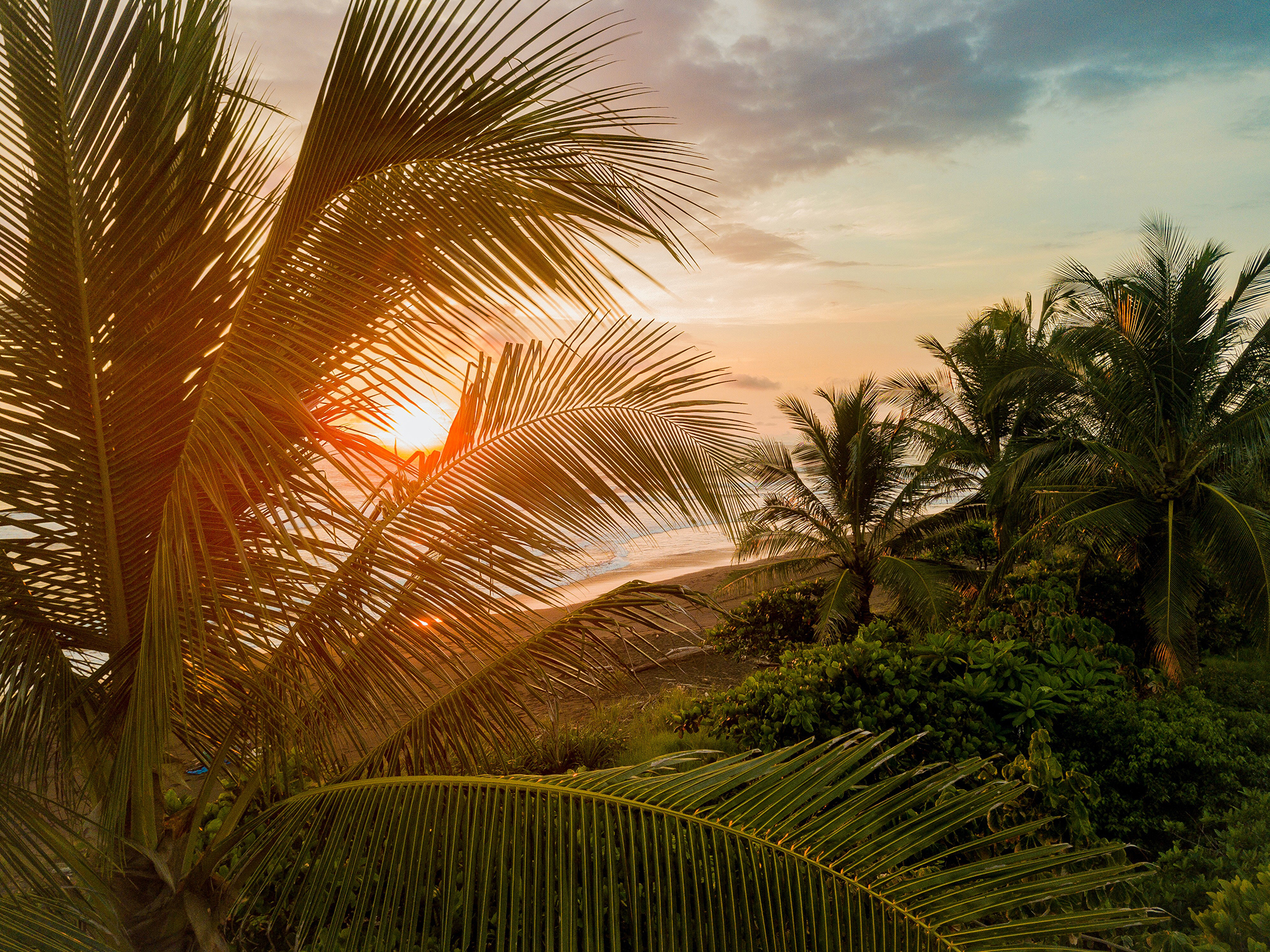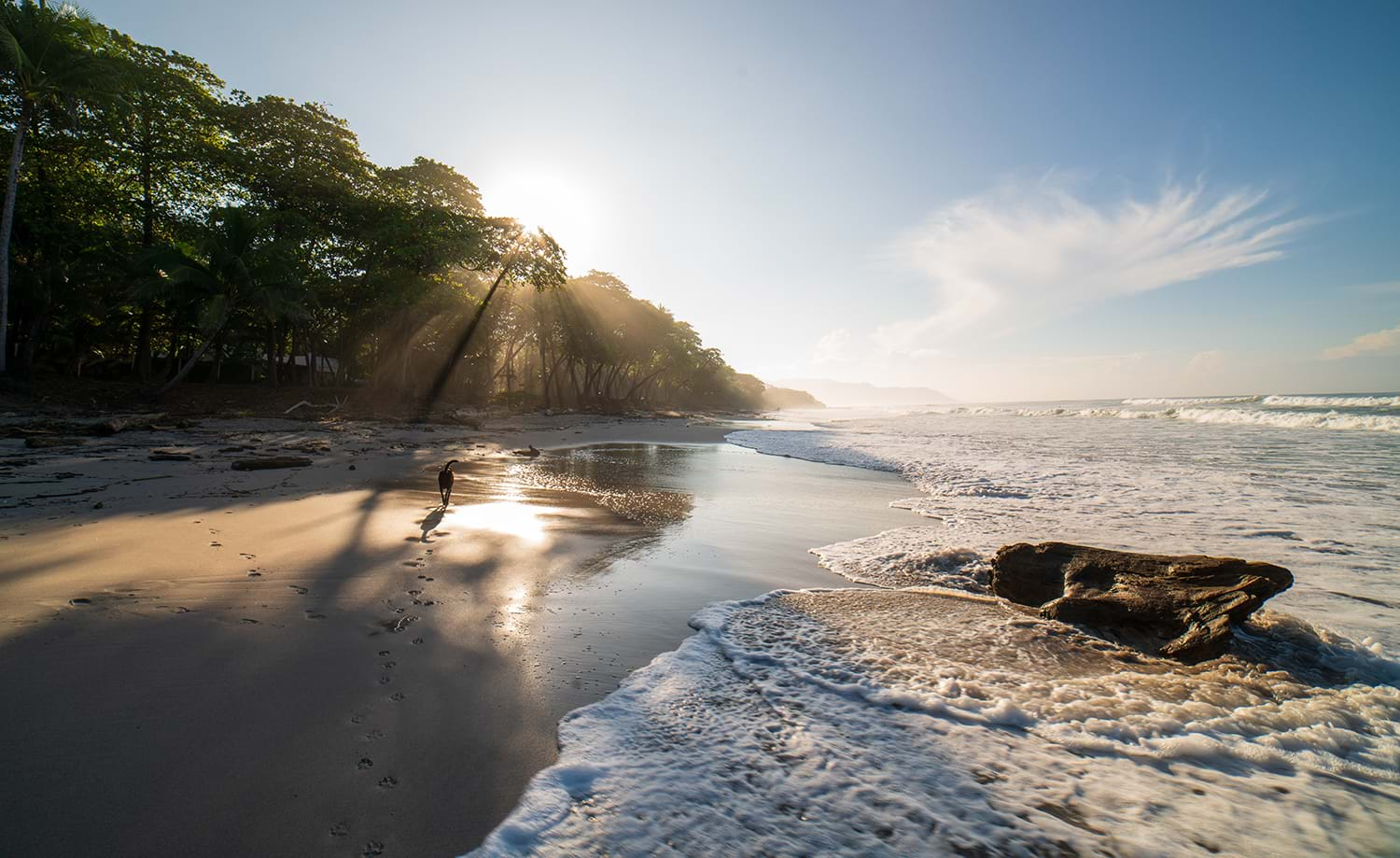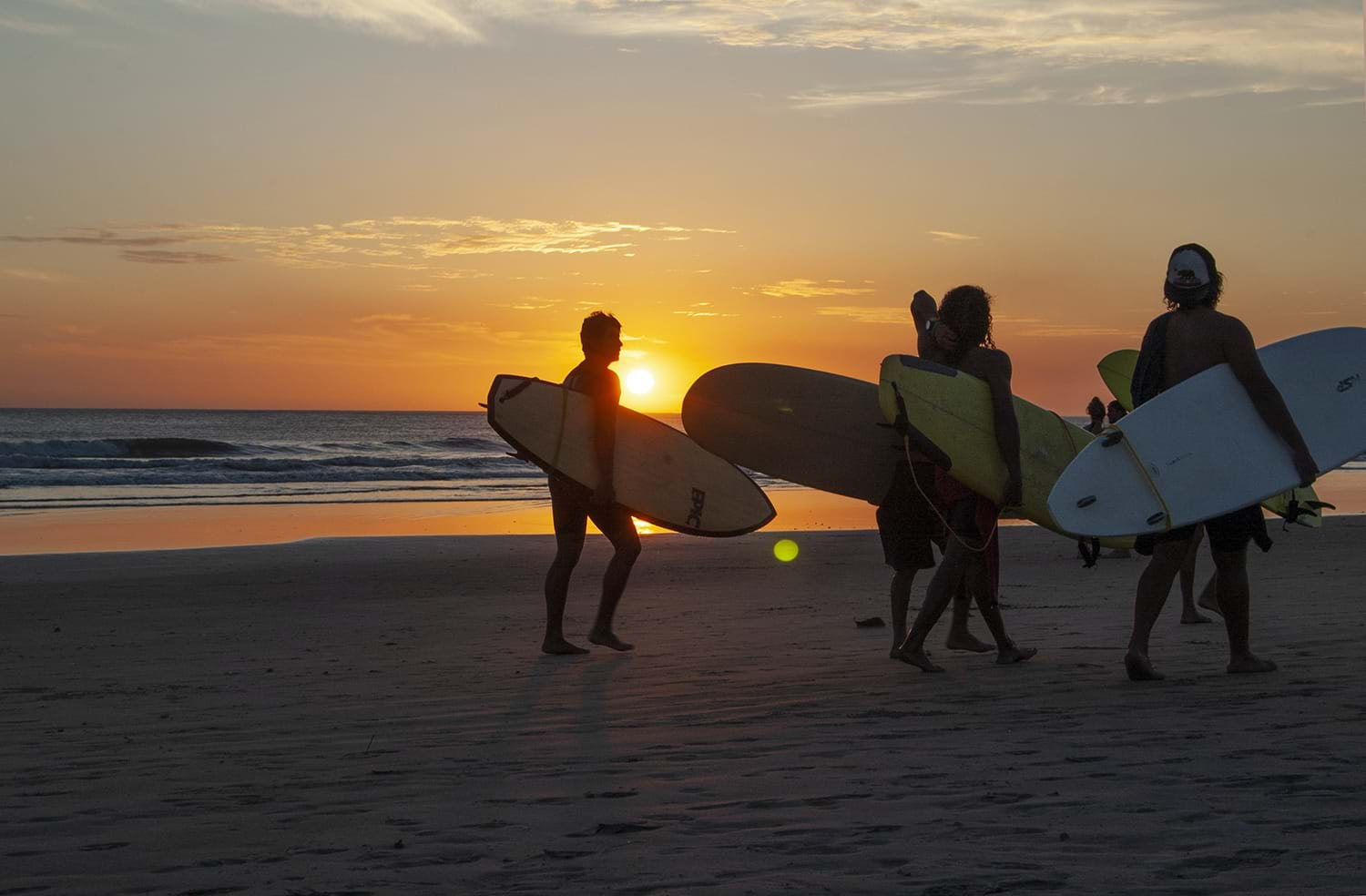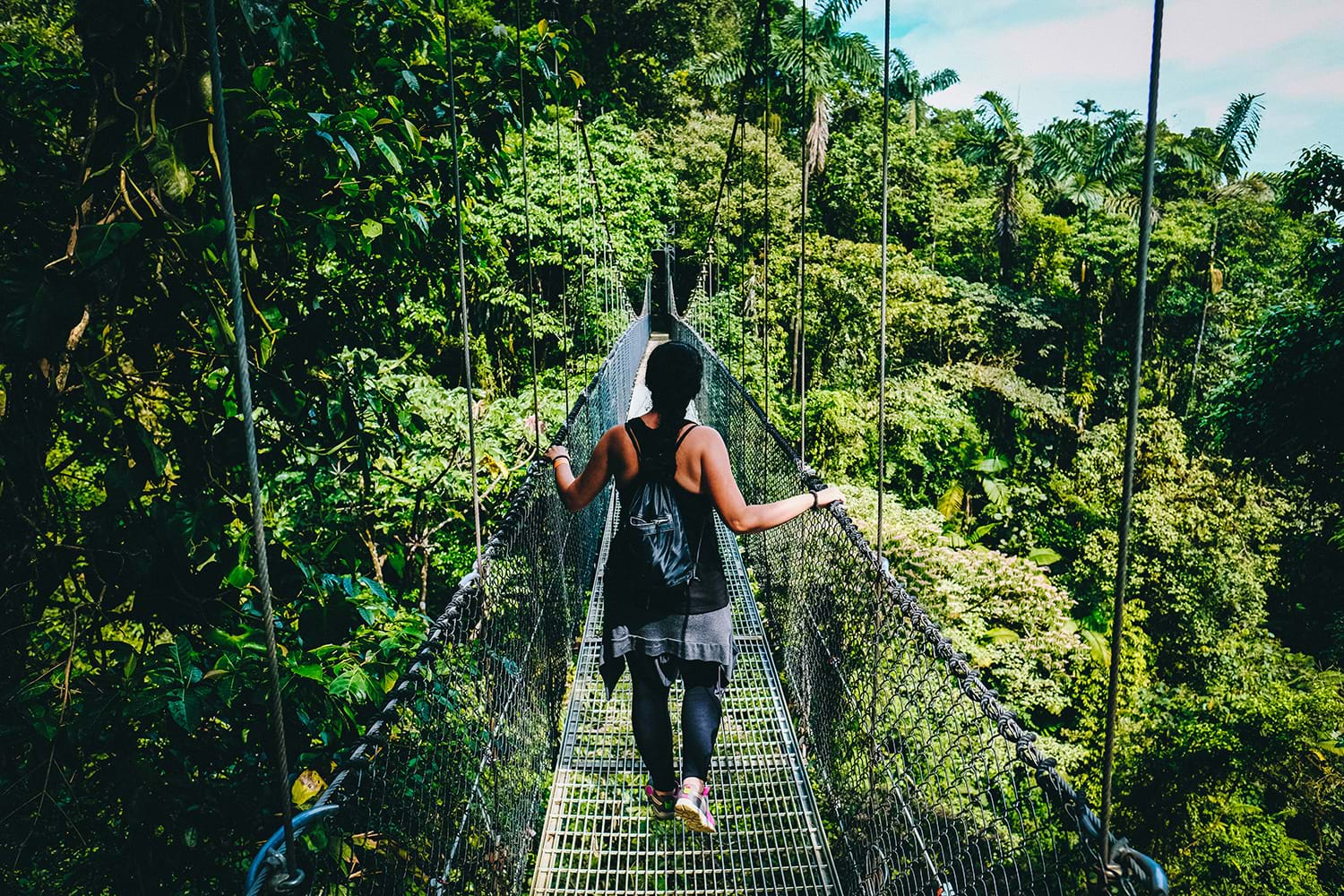 Photo by Samuel Charron on Unsplash
Photo by Samuel Charron on UnsplashIS IT SAFE TO TRAVEL TO COSTA RICA IN 2025?
Costa Rica is the traditional safe-but-exotic destination for backpacking trips and Spanish Club excursions. But is Costa Rica a safe destination for all these travelers?
The good news is that Costa Rica lives up to its billing as one of the safest countries in the Western Hemisphere. By taking some simple precautions you can have a great time and enjoy the country’s cities, beaches, rainforests, and mountains.
NUMBERS SHOW COSTA RICA’S SAFETY
Here’s Costa Rica by the safety numbers:
- 23: The annual Safest Places Ratings from Berkshire Hathaway Travel Protection place Costa Rica 32nd out of 42 countries, and safest in the region.
- 58: One of the fascinating facts about Costa Rica is that the country has not had a standing army since 1949. For that reason and others, including a low incarceration rate, the Global Peace Index ranks the country 58th out of 163 countries and tops in the region.
- 2: Finally, the State Department gives Costa Rica a level-2 (“Exercise Increased Caution”) rating.
 Photo by Nathan Farrish on Unsplash
Photo by Nathan Farrish on Unsplash
HOW TRAVELERS CAN STAY SAFE
Crime is on the upswing in Costa Rica; however, there are multiple ways travelers can stay safe when they travel to and around Costa Rica.
These safety measures can vary based on where you are and what you’re doing.
Getting around
Petty theft is common at bus stations. Look like you know where you’re going and what you’re doing, and keep a particular eye on your belongings.
If you’re using an ATM at a bus station, cover the keypad with your hand and look around before entering your PIN.
Beware of good Samaritans offering to carry your bags in bus stations and airports. It’s often a scam.
Driving
According to the U.S. government’s Overseas Security Advisory Council (OSAC), “Driving can be extremely challenging, even to the most experienced driver.”
The OSAC report goes on to cite:
- Bad roads, with many potholes
- Roads too narrow and winding to accommodate traffic
- Poor lighting and marking of roads
- Frequent traffic jams
- Multiple accidents
- Ignorance of traffic laws and speed limits
If you do decide to drive in Costa Rica despite of all that, be careful.
 Photo by William Krause on Unsplash
Photo by William Krause on Unsplash
Taxis
Only use cabs from reputable companies – generally red or orange cars with a yellow triangle on the door and functioning meters. Uber is also an option.
Flying
Flying is generally safe and reliable. However, smaller planes that fly into the interior are often grounded by weather and/or volcanic activity. This can wreak havoc with travel plans, making travel insurance more of a must-have for these trips.
In the cities
San José is Costa Rica’s largest city, a vibrant place and the country’s capital, but also one of the places in Costa Rica where crime is a particular concern.
As OSAC notes, “There is considerable risk from crime in San José.”
The agency goes on to state, “While the vast majority of visitors to Costa Rica do not become victims of crime … Theft is common in highly populated and tourist areas, particularly in cases where individuals do not closely watch personal belongings.
“The most common types of theft that occur include vehicle burglary, home robbery, pickpocketing, smash-and-grab, mugging, and purse/wallet snatching … Crimes that are more serious (e.g. armed robbery, sexual assault, and homicide) do occur, although less frequently.”
To make yourself less of a target in the cities:
- Avoid going out alone at night
- Dress modestly and don’t show fancy clothes or jewelry
- Be aware of your surroundings
- Let people know where you’re going
- Split up money and valuables
 Photo by Delphine Beausoleil on Unsplash
Photo by Delphine Beausoleil on Unsplash
On the beach
Unlike many other Central American countries, Costa Rica has a lot of lifeguards. However, that doesn’t mean they’ll be on every beach when you want to swim.
Regardless of whether there’s a lifeguard present, and no matter how safe the water is, you need to exercise caution.
In addition, you need to have a plan for keeping your passport, wallet, phone, and other important stuff safe when you’re at the beach – and especially when you’re in the water.
If the beach doesn’t have secure lockers available, you’ll need to carry the important stuff with you, making a waterproof swim pouch or fanny pack (like the ones made by Booe) a must. However, make sure the pouch you choose is 100% waterproof, and follow all instructions for use.
In the backcountry
Costa Rica is a great country for backpackers, and explorers of all types. If you do decide to go exploring in Costa Rica’s amazing national parks, follow these safety tips:
- Be careful in the gateway cities. According to The Broke Backpacker, crime is higher in Quepos and other cities that often serve as entry points for the national parks.
- Let people know where you’re going. Give them a rough itinerary, knowing that you won’t always be reachable by phone.
- Avoid accepting rides from strangers.
- Pack mosquito repellent that’s high in DEET. Costa Rican mosquitoes are nasty – and they often carry disease.
- Watch the weather. Major weather events are relatively rare in Costa Rica, but the country is susceptible to earthquakes, floods, tropical storms, and hurricanes.
- Make sure you choose travel insurance with high levels of coverage for medical emergencies and medical evacuation. ExactCare Extra® from Berkshire Hathaway Travel Protection has up to $50,000 in medical and $500,000 in evacuation coverage.
 Photo by Fabio Fistarol on Unsplash
Photo by Fabio Fistarol on Unsplash
If you get sick
Speaking of mosquitoes and medical emergencies, Dengue fever cases are exploding in Costa Rica, hence the admonition to pack mosquito repellent.
The disease's incubation period means you may not get sick in-country, but there are plenty of other maladies that you can contract – not to mention injuries from falls and car accidents.
Costa Rica has outstanding healthcare, so don’t be afraid to call a doctor; just be sure to let your travel medical insurance carrier also know about your medical issues, so they can help arrange payment and coordinate care.
There’s a reason why the State Department and the Costa Rican government recommend travel medical insurance. If you have a medical emergency, it just makes everything easier.
If you lose crucial documents
Whether you leave your passport on the beach, lose it in the rainforest, or have it stolen from your backpack, getting a replacement can be difficult.
Two things can really help:
- Enrolling in the Safe Traveler Enrollment Program gets you contact information for and the location of the nearest embassy or consulate, so you can expedite the process of getting a replacement.
- The travel assistance included with every Berkshire Hathaway Travel Protection plan can help make calls on your behalf and keep working with the necessary parties while you keep traveling.
You can help yourself as well. Make multiple copies of important documents and keep them in multiple locations. Spread around money and credit cards.
Costa Rica really is one of the safest and most beautiful destinations in the Western Hemisphere for American tourists. A few simple precautions – and travel insurance from BHTP – is all it takes to have a great time.
Questions About Travel Insurance?
Check out our online guide, "What Is Travel Insurance All About?" We've provided in-depth answers to all your travel insurance questions, starting with the basics.